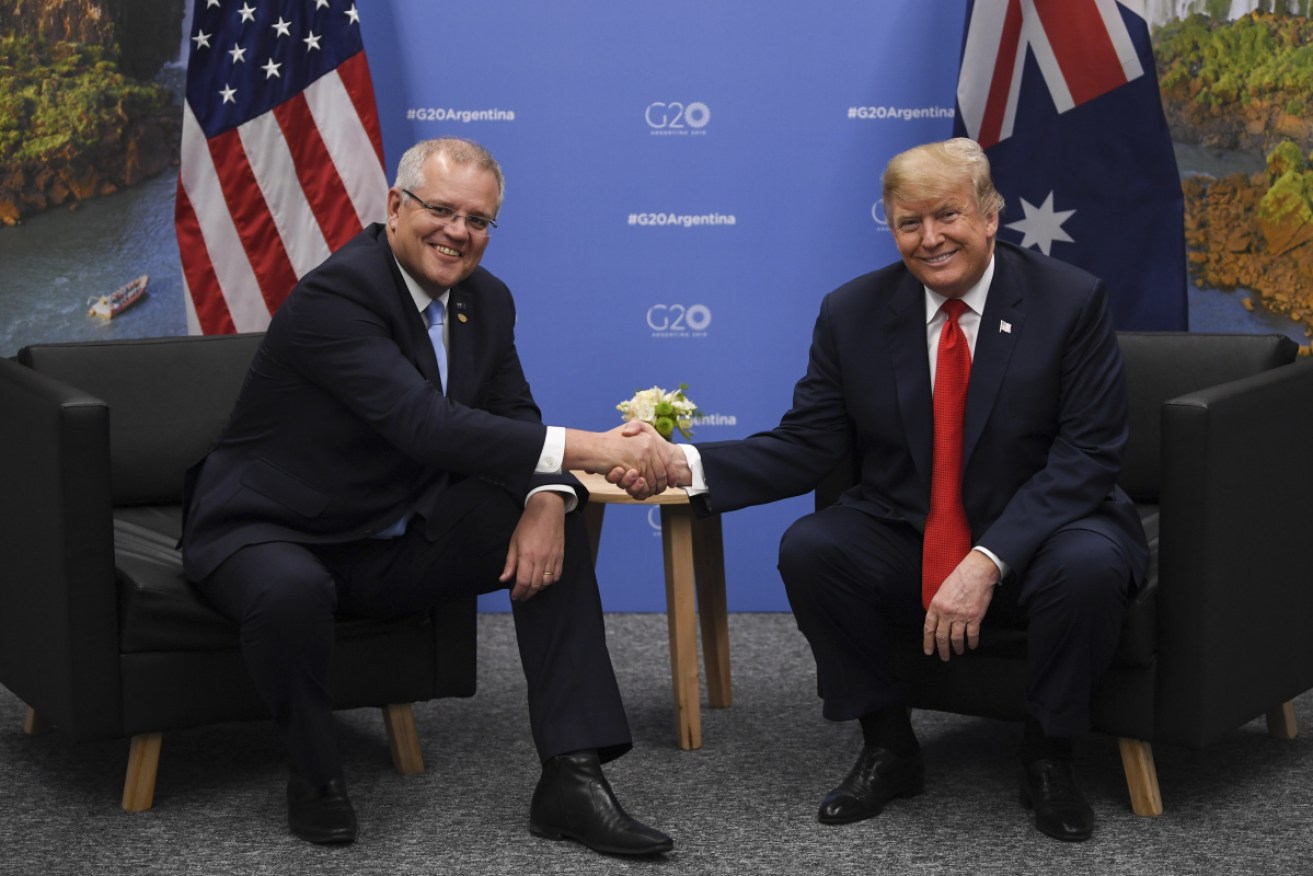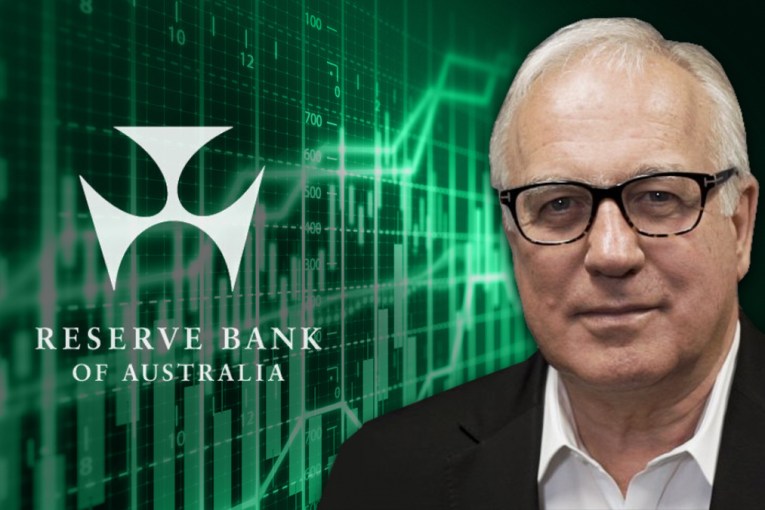President Trump to wine and dine his mini-me Scott Morrison in Washington


Mr Morrison shakes hands with Mr Trump at the G20 summit in Buenos Aires. Photo: AAP
Scott Morrison is tickled pink he is the first prime minister in 13 years to be invited to attend a formal state dinner at the White House.
Mr Morrison flies out on Thursday and says it is “an honour to accept President Trump’s generous invitation”.
Australia’s ambassador to the United States Joe Hockey says “it’s the greatest compliment the US can pay another country to put on a full state reception”.
Mr Hockey goes further and says the two leaders have a lot in common.
He told Sky TV “Donald Trump is a practical outcomes-focused person and Scott Morrison is very much the same. They are focused on outcomes and they are focused on people.”
Tweet from @Megan_Palin
The Labor Opposition believes Mr Morrison is much closer to Mr Trump in other less-flattering ways.
The President rejects any criticism of him, no matter how well documented as “fake news”.
Mr Morrison, like Mr Trump, has the knack of saying one thing one day and denying that he did the next.
Even though there are many examples going back to his days in opposition, now that he is the prime minister what he says about key issues like the economy and wages will receive much harsher reality checks.
A recurring example is Mr Morrison’s repackaging of his attitude to climate change. The PM regularly calls black white when it comes to his government’s seriousness and achievements in dealing with it.
He says Australia is meeting its emission reduction targets and has programs in place that do “the heavy lifting”.
And yet on the government’s own figures, emissions have gone up every year on its watch and on its own projections will do so all the way to 2030.
Australia will miss its Paris targets by a “country mile” is the view of the Climate Council.
Tweet from @FLOTUS
The latest example of the way in which Mr Morrison answered this question from a journalist last Friday: “Prime Minister, why was it racist to question Gladys Liu’s connections to China but wasn’t racist to call Sam Dastyari Shanghai Sam?”
His response: “I didn’t use either of those phrases” was something he repeated again in Parliament on Monday even though there are at least 19 instances all on camera where he did.
In Parliament, Anthony Albanese tried to censure the Prime Minister “for repeatedly abandoning any sense of integrity whenever it is politically expedient to do so”.
Before the government applied the gag, Mr Albanese said: “the Prime Minister has been exposed for his opportunism, and he has been exposed for his hypocrisy.”
Labor senator Murray Watt told Ten News First that “Australians are beginning to wonder if Morrison is becoming the liar from the Shire”.
Mr Morrison feigned indifference to the attacks, though the application of the gag showed the government is wary of their potency to define the prime minister in a dangerously negative way.
Better to try and starve of oxygen genuine issues like the PM’s protection than allow real scrutiny.

Member for Chisholm Gladys Liu is congratulated by Mr Morrison. Photo: AAP
Though Mr Morrison rolled his eyes when Mr Albanese kept probing his apparent dissembling, he was clearly uncomfortable.
He accused his opponent of being weak and lame with nothing better to do than to pore over transcripts “worrying about this word and this word”.
“This country is in drought,” Mr Morrison bellowed “facing natural disasters, severe economic challenges. The Leader of the Opposition is running around like a researcher looking up words. Grow up.”
Before the government shut him down, the manager of opposition business Tony Burke told the House: “whenever he (Morrison) opens his mouth it is opposite day, opposite day every single time.”
The danger is though, dissembling issues that directly affect people’s lives, like power prices, wages and extreme weather, gets harder the longer a government is in power.
Paul Bongiorno AM is a veteran of the Canberra Press Gallery, with 40 years’ experience covering Australian politics








